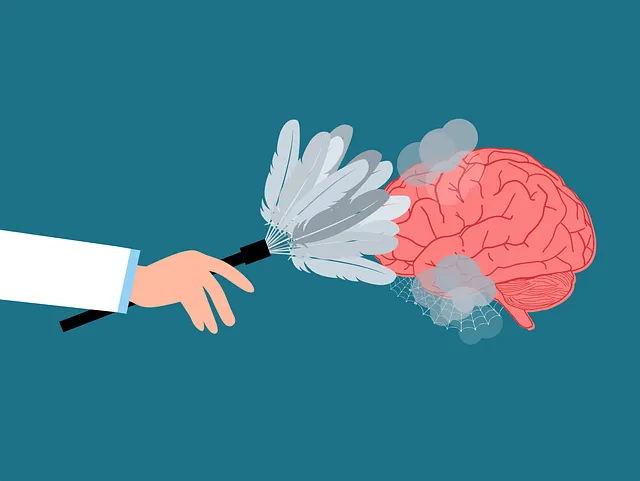Kaiser Permanente's crisis intervention strategies in Littleton, powered by evidence-based practices like CBT, Mindfulness and Compassion Cultivation, offer immediate emotional support while fostering long-term mental health resilience through self-esteem improvement, coping skills training, and purpose-building. This holistic approach to Kaiser Permanente mental health coverage in Littleton equips individuals with durable tools to manage crises and enjoy improved quality of life.
In the face of crisis, effective intervention can make a world of difference. This comprehensive guide for healthcare professionals explores essential strategies and resources, including an in-depth look at Kaiser Permanente’s mental health coverage and its role in supporting crisis intervention in Littleton and beyond. From understanding crisis dynamics to implementing evidence-based practices, this article equips professionals with the tools needed to enhance support systems and foster positive outcomes.
- Understanding Crisis Intervention: A Overview for Healthcare Professionals
- Kaiser Permanente Mental Health Coverage: What It Offers and How It Supports Intervention
- Effective Strategies for Crisis Intervention in Littleton and Beyond
- Implementing Evidence-Based Practices: A Guide to Enhancing Support Systems
Understanding Crisis Intervention: A Overview for Healthcare Professionals

Crisis intervention strategies are essential tools for healthcare professionals working with individuals experiencing acute emotional distress or mental health crises. Understanding crisis intervention involves recognizing that it is a short-term, goal-oriented process aimed at stabilizing the individual and reducing immediate danger. The primary focus is on assessing the situation, providing support, and connecting the person to appropriate resources, ensuring their safety and well-being.
For healthcare professionals like those at Kaiser Permanente in Littleton, integrating self-esteem improvement techniques, mental wellness coaching programs, and compassion cultivation practices into crisis intervention can significantly enhance outcomes. These strategies not only address the immediate crisis but also foster long-term mental health by promoting resilience, coping skills, and a sense of purpose, ultimately contributing to improved quality of life for the individuals they serve.
Kaiser Permanente Mental Health Coverage: What It Offers and How It Supports Intervention

Kaiser Permanente Mental Health Coverage provides a robust framework for crisis intervention strategies in Littleton and beyond. Their comprehensive plan includes access to a diverse range of mental health professionals, ensuring individuals receive tailored support during challenging times. The organization emphasizes evidence-based practices such as Compassion Cultivation Practices, which foster empathy and resilience.
This coverage not only offers immediate assistance through trauma support services but also focuses on long-term well-being. By integrating Self-Esteem Improvement techniques, Kaiser Permanente empowers individuals to navigate crises with enhanced coping mechanisms. Their dedicated team ensures that members have the resources needed to confront and overcome mental health challenges effectively.
Effective Strategies for Crisis Intervention in Littleton and Beyond

In the face of a crisis, swift and effective intervention can make all the difference for individuals seeking support in Littleton and surrounding areas. One notable organization making significant strides is Kaiser Permanente, renowned for its comprehensive mental health coverage options in this region. Their crisis intervention strategies are designed to meet the unique needs of each individual, focusing on rapid access to care and evidence-based practices.
By integrating various approaches such as crisis counseling, meditation techniques, and Stress Management Workshops Organization, Kaiser Permanente empowers individuals to navigate their emotional healing processes. Additionally, their mood management programs aim to equip participants with tools to prevent and manage future crises effectively. These strategies not only provide immediate relief but also foster long-term resilience, ensuring individuals are better equipped to handle life’s challenges.
Implementing Evidence-Based Practices: A Guide to Enhancing Support Systems

Implementing Evidence-Based Practices is a powerful strategy to enhance crisis intervention and support systems, especially when tailored to meet the unique needs of individuals seeking mental health services through Kaiser Permanente mental health coverage in Littleton. These practices have been rigorously studied and proven effective in managing and preventing crises, offering valuable tools for professionals and caregivers alike. By integrating evidence-based techniques, such as Cognitive Behavioral Therapy (CBT) and Mindfulness-Based Interventions, into crisis intervention protocols, support systems can be revolutionized.
This approach focuses on empowering individuals to develop coping mechanisms that go beyond quick fixes. Techniques like Mood Management strategies, Self-Awareness Exercises, and fostering Positive Thinking have been shown to reduce the frequency and intensity of crises over time. By equipping those in need with these evidence-based tools, professionals can facilitate a sense of agency and resilience, enabling individuals to better navigate future challenges under their own terms.
In conclusion, crisis intervention plays a vital role in healthcare, especially in communities like Littleton. By understanding the basics and utilizing evidence-based practices, professionals can effectively support individuals during mental health crises. The article has provided an overview of essential strategies, highlighting the significance of Kaiser Permanente’s mental health coverage in offering comprehensive support. Through implementing these techniques, healthcare providers in Littleton and beyond can enhance their ability to assist those facing mental health challenges, ultimately fostering a more resilient and supportive community.






